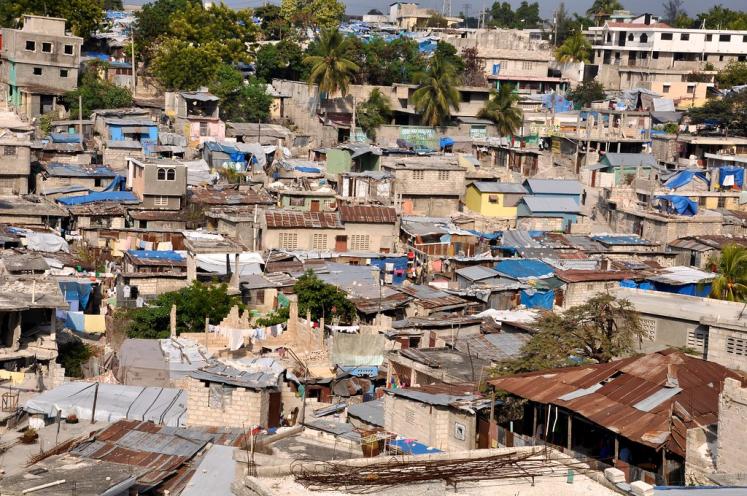A new UNU-CPR policy brief explores the relationships between climate-related mobility and urbanization processes in the Global South – and outlines several policy recommendations to address the challenges this form of mobility poses and the vulnerabilities that climate migrants are forced to endure in urban areas.
The recommendations put forward in the brief are a synthesis of ideas and solutions presented at a UNU-CPR migration policy roundtable, which brought together UN agencies, Member States, NGOs, civil society organizations, academia, and others with an interest in better understanding the policy implications of climate-related mobility.
According to the International Organization for Migration (IOM), a staggering 113 million people are projected to internally migrate by 2050 in response to slow-onset climate change impacts, such as water stress, crop failure, and sea level rise. Under a pessimistic scenario, that number almost doubles.
The brief examines the problems associated with these projected migration patterns and explains how focusing the discussion of climate-related mobility on urban contexts encourages a more comprehensive understanding of the many developmental and structural conditions affecting climate-related migrants.
Climate-related mobility reflects the weak position of climate-related migrants embedded between rural and urban spaces and their associated vulnerabilities. They need long-term policy support that addresses structural inequalities in contexts where potential climate migrants live. The informality and temporality of climate-related mobility also needs to be addressed in the urban policy context. Policy interconnectivity across different levels of governance is essential, as is international support for the Global South. Finally, other urban planning polices, such as urban housing, must also be taken into consideration when preparing climate-mitigation policies.
Specific recommendations put forward in the brief include:
- Climate-related mobility and other climate change adaptation responses should be addressed in the local policy context and within broader developmental processes.
- Identify the specific vulnerabilities of climate-related migrants in cities in the context of structural inequalities, such as the limitations of citizenship, poor living conditions, social exclusion, and poor job security.
- Policy interconnectivity is critical across different levels of mobility and urban governance, especially in relation to labour migration, public health, human rights, and gender equality.
- The nexus between climate-related mobility and urbanization in the Global South should be addressed at the United Nations Climate Change Conference of the Parties (COP).
Read “Understanding Climate-related Mobility in Contexts of Urbanization” here.



